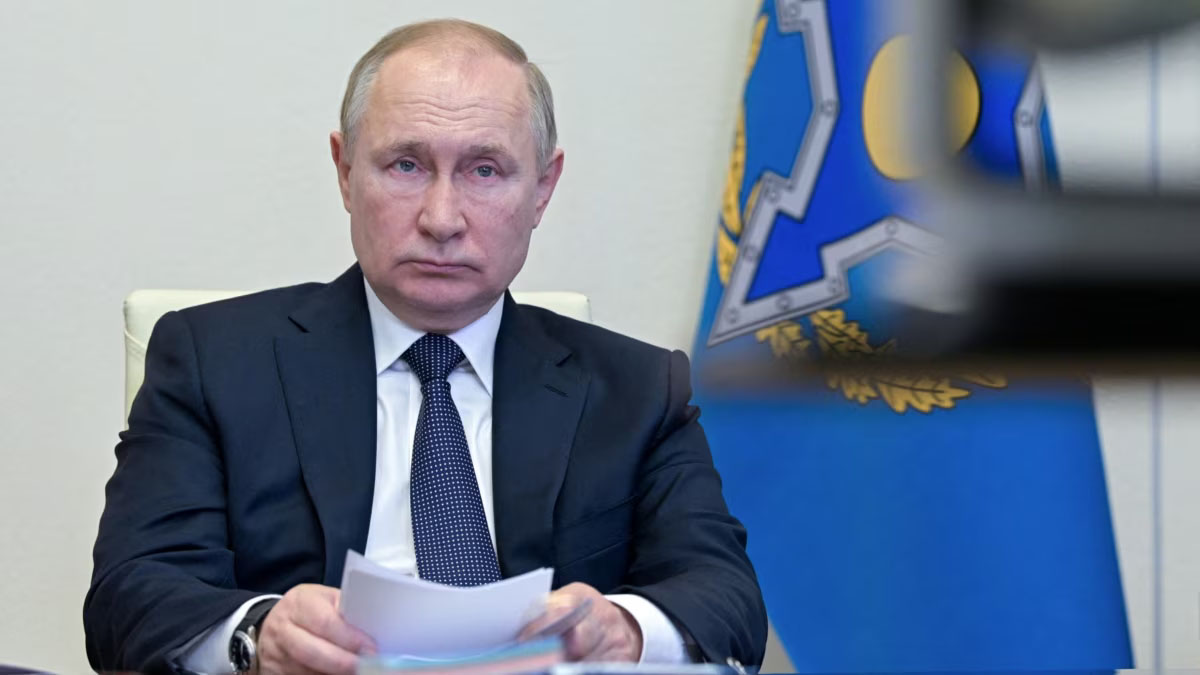Photo Credit: Getty Images
Russian President Vladimir Putin has agreed to a temporary halt on strikes against Ukrainian energy infrastructure but declined to endorse the full 30-day ceasefire proposed by President Donald Trump. This marks the first mutually agreed suspension of attacks in the three-year conflict, though fighting will continue elsewhere on the battlefield.
Following a two-and-a-half-hour phone call between Trump and Putin on Tuesday, the Kremlin announced that Putin ordered Russian forces to stop attacking energy sites. Ukraine's President Volodymyr Zelensky indicated support for this limited agreement, stating: "Russia and Ukraine, through the mediation of the U.S., can agree not to attack energy infrastructure."
The scaled-back agreement requires both nations to refrain from targeting each other's energy facilities for approximately one month. Experts suggest Putin may be stalling while Russian troops continue to advance in eastern Ukraine, agreeing to minimal concessions while appearing engaged in peace talks.
"Up until recently, we really didn't have consensus around these two aspects - the energy and infrastructure ceasefire and the Black Sea moratorium on firing - and today we got to that place," said Trump envoy Steve Witkoff to Fox News. He added that talks would continue in Jeddah, Saudi Arabia on Sunday.
The energy truce provides mutual benefits. Ukraine has struggled with Russia's persistent attacks on its power grid, while Moscow has faced Ukrainian strikes on oil and gas facilities deep within Russian territory, threatening critical state revenue streams.
Significant obstacles remain. Putin insisted that lasting peace requires completely ending foreign military and intelligence assistance to Kyiv. He expressed concerns that even a temporary ceasefire might allow Ukraine to rearm and mobilize additional troops. These conditions are known to be unacceptable to the Ukrainian government.
As gestures of goodwill, Putin announced Russia would release 23 seriously wounded Ukrainian soldiers and conduct a prisoner exchange later this month involving 175 prisoners from each side.
The negotiations follow a public rift between Trump and Zelensky that temporarily halted U.S. military aid to Ukraine earlier this month. Aid resumed after officials met in Saudi Arabia and agreed to propose the comprehensive 30-day ceasefire.
Senior Ukrainian officials have established firm boundaries for negotiations: Kyiv will not formally recognize Russian sovereignty over occupied territory, accept neutral status, or reduce its armed forces. Zelensky stated Ukraine would not recognize occupied territory as Russian "under any circumstances."
White House officials acknowledged that the energy infrastructure agreement falls short of Trump's initial hopes. Neither the White House nor the Kremlin mentioned discussions about territorial concessions or the Russian-occupied Zaporizhzhia nuclear power plant, Europe's largest nuclear facility.


